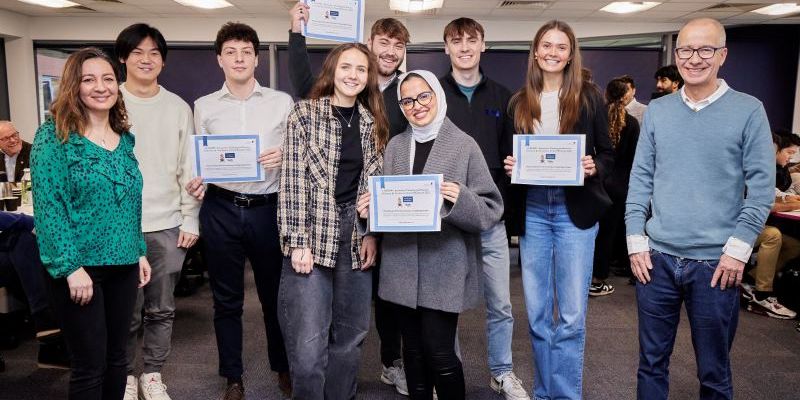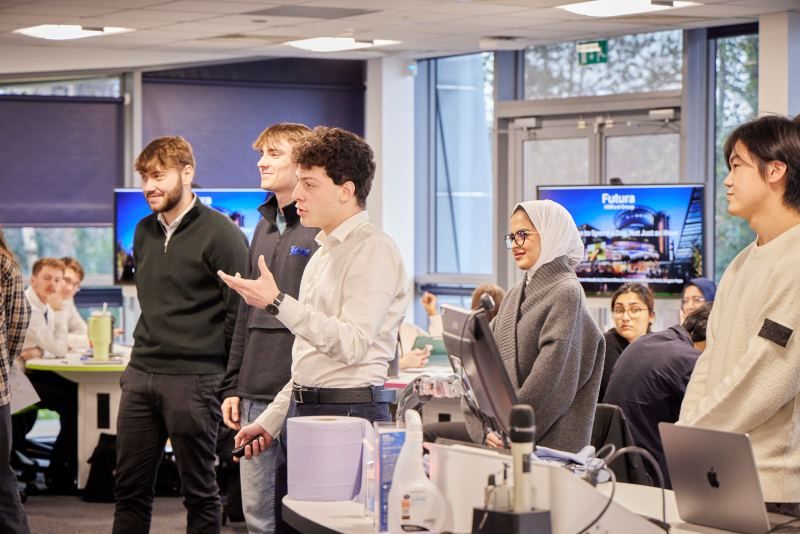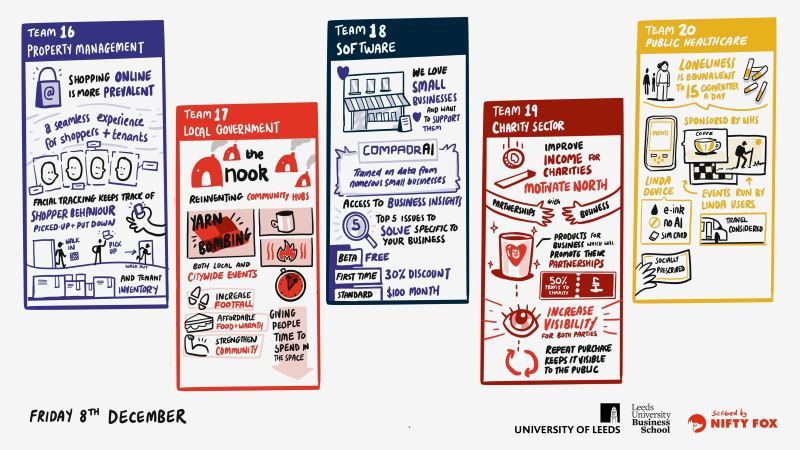
Students put their ideas to the test when they came face-to-face with a panel of senior industry experts.
Teams of students from across the University of Leeds pitched their ideas to local, national and international organisations as a part of the Innovation Thinking and Practice module.
Each team was tasked with addressing a real-world innovation challenge, co-developed with a public, private or charity sector partner organisation. Challenge areas including banking, retail, energy, software, local government and healthcare.
One of the key strengths of this module is the depth and breadth of the engagement with industry partners.”
During the module, students undertook research, developed ideas and created prototypes and value-based pitch presentations. Protoypes on show included a range of digital solutions, 3-D printed prototypes created in the University’s new HELIX maker space, new processes and events.
Professor Jeff Grabill, Deputy Vice-Chancellor: Student Education, said: “The focus on experiential learning and interdisciplinarity is critical. Working in cross-faculty teams, the students address real-world challenges and develop many key skills. The ability to work in diverse teams, have empathy for and communicate with stakeholders, understand commercial and wider societal value, be resilient and manage change has never been more important.”
Dr Martin Stow, Pro Vice-Chancellor Business Engagement and Enterprise, added: “One of the key strengths of this module is the depth and breadth of the engagement with industry partners.
“It’s great to see such a diverse range of experts from industry involved, developing the innovation challenges, supporting the students inside and outside the classroom and providing feedback during the final pitch presentations."
“I’m delighted that a number of organisations are now following up with the student teams to explore their ideas further, recognising the entrepreneurial and enterprise spirit that we are nurturing at Leeds."
Ideas pitched by the students included new approaches for reducing energy usage and carbon emissions, AI-based automation for generating financial planning presentations, a seamless in-store shopping experience and health tech innovations for non-emergency patients.
Grace Hassall, a student studying International Business, said: “It’s my most engaging module and is really useful for the future”.

A group of students pitching their idea to a panel of industry experts.
Gaelle Dagher, a student studying Computer Science, added: “I've always had a passion for business and entrepreneurship. My future aspirations include starting up a business that utilises Artificial Intelligence to solve real-world problems.
“The innovation module perfectly set me up with the right tools to start planning and prototyping my product along with the technical knowledge gained from my degree.”
Following the presentations students answered questions and received feedback from the panel of experts, while making new business contacts and connections.
The final presentations by the students are always outstanding, a tremendous outcome after just 10 weeks.”
The panel of experts included representatives from IBM, KPMG, the NHS, first direct, the Royal Academy of Engineering, Leeds City Council and Inspire North.
Sean Flanagan, Vice-President, Client Engineering and Quantum Ambassador at IBM said: “This module is a great match to real business skill needs. I’ve recently hired 600+ people with exactly these skills - design thinking, business innovation and utilising technology.
“The final presentations by the students are always outstanding, a tremendous outcome after just 10 weeks.”
The focus of the module is the development of key innovation and employability skills, including communication and collaboration skills, commercial awareness, resilience and change management.
Wei Xiang, a student studying International Business and Finance, said: “My team members were really friendly and helped each other, which made me more confident.”

Illustrations of students’ business pitches.
At the end of the events, Chris Redford, an illustrator from Nifty Fox, showcased illustrations, drawn during each presentation, that visually represented the pitches.
The module’s teaching team are Tony Morgan, Dr Lena Jaspersen and Dr Sanaz Sigaroudi. Reflecting on the event, Tony said: “It’s great to see all the teams deliver such inspiring and engaging pitches. Communication skills like this and the other skills the students have developed during the module will be invaluable in their future lives and careers.”
Further information
For more information, please contact Rebecca Hurrey at r.hurrey@leeds.ac.uk in the University of Leeds Press Office.
Photo Credit: Simon and Simon Photography and Nifty Fox Illustration.